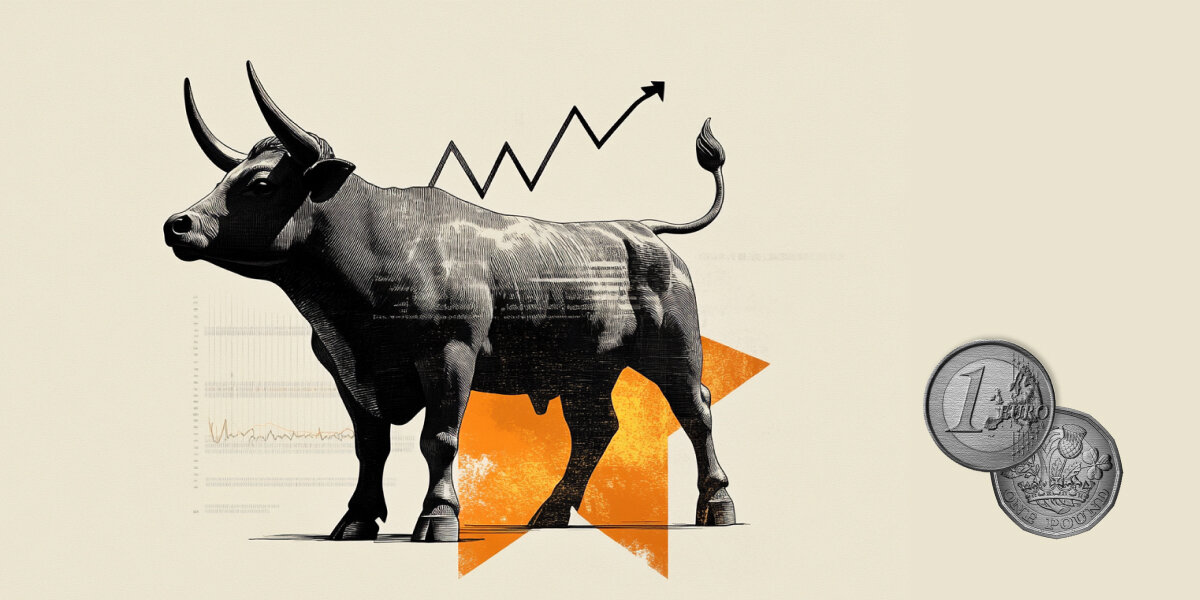Created
: 2025.10.28














![]() 2025.10.28 21:46
2025.10.28 21:46
The Euro accelerated its rally against a weaker British Pound on Tuesday to reach its highest level in two years, and is about to break the November 2023 high at 0.8765 at the time of writing. The pair has been appreciating continuously for the last five days, while in the UK, the soft shop price inflation has hammered the Pound across the board.
Data released by the British Retail Consortium (BRC) earlier on Tuesday revealed that UK shop inflation eased to a 1% year-on-year growth in October, from 1.4% in September, despite the 4.3% yearly growth shown by fresh food. These figures come after softer-than-expected UK Consumer Price Index figures released last week, and keep market hopes of further BoE rate cuts alive.
The Euro, on the other hand, remains firm against its main peers. The Eurozone economic calendar is thin today, and investors are awaiting the outcome of the European Central Bank's (ECB) monetary policy meeting. The bank is widely expected to keep its benchmark interest rate unchanged at the current 2% and the market will be eager to know whether the central bank contemplates any further monetary easing or if it has reached the end of the cycle.
Earlier on the day, the German GfK research institute revealed that consumer confidence deteriorated to -24.1 in November, from -22.3 in October, against expectations of an slight improvement to -22.0.
Later on the day, a survey from the European Central Bank (ECB) revealed that consumer inflation expectations for the next 12 months eased to a 2.7% rate, from 2.8% in August, the two and five-year expectations remained steady at 2.5% and 2.2% respectively. The impact of these releases on the Euro has been marginal.
Inflation measures the rise in the price of a representative basket of goods and services. Headline inflation is usually expressed as a percentage change on a month-on-month (MoM) and year-on-year (YoY) basis. Core inflation excludes more volatile elements such as food and fuel which can fluctuate because of geopolitical and seasonal factors. Core inflation is the figure economists focus on and is the level targeted by central banks, which are mandated to keep inflation at a manageable level, usually around 2%.
The Consumer Price Index (CPI) measures the change in prices of a basket of goods and services over a period of time. It is usually expressed as a percentage change on a month-on-month (MoM) and year-on-year (YoY) basis. Core CPI is the figure targeted by central banks as it excludes volatile food and fuel inputs. When Core CPI rises above 2% it usually results in higher interest rates and vice versa when it falls below 2%. Since higher interest rates are positive for a currency, higher inflation usually results in a stronger currency. The opposite is true when inflation falls.
Although it may seem counter-intuitive, high inflation in a country pushes up the value of its currency and vice versa for lower inflation. This is because the central bank will normally raise interest rates to combat the higher inflation, which attract more global capital inflows from investors looking for a lucrative place to park their money.
Formerly, Gold was the asset investors turned to in times of high inflation because it preserved its value, and whilst investors will often still buy Gold for its safe-haven properties in times of extreme market turmoil, this is not the case most of the time. This is because when inflation is high, central banks will put up interest rates to combat it. Higher interest rates are negative for Gold because they increase the opportunity-cost of holding Gold vis-a-vis an interest-bearing asset or placing the money in a cash deposit account. On the flipside, lower inflation tends to be positive for Gold as it brings interest rates down, making the bright metal a more viable investment alternative.
slight
![]()
Created
: 2025.10.28
![]()
Last updated
: 2025.10.28

FXStreet is a forex information website, delivering market analysis and news articles 24/7.
It features a number of articles contributed by well-known analysts, in addition to the ones by its editorial team.
Founded in 2000 by Francesc Riverola, a Spanish economist, it has grown to become a world-renowned information website.
We hope you find this article useful. Any comments or suggestions will be greatly appreciated.
We are also looking for writers with extensive experience in forex and crypto to join us.
please contact us at [email protected].
Disclaimer:
All information and content provided on this website is provided for informational purposes only and is not intended to solicit any investment. Although all efforts are made in order to ensure that the information is correct, no guarantee is provided for the accuracy of any content on this website. Any decision made shall be the responsibility of the investor and Myforex does not take any responsibility whatsoever regarding the use of any information provided herein.
The content provided on this website belongs to Myforex and, where stated, the relevant licensors. All rights are reserved by Myforex and the relevant licensors, and no content of this website, whether in full or in part, shall be copied or displayed elsewhere without the explicit written permission of the relevant copyright holder. If you wish to use any part of the content provided on this website, please ensure that you contact Myforex.
Myforex uses cookies to improve the convenience and functionality of this website. This website may include cookies not only by us but also by third parties (advertisers, log analysts, etc.) for the purpose of tracking the activities of users. Cookie policy